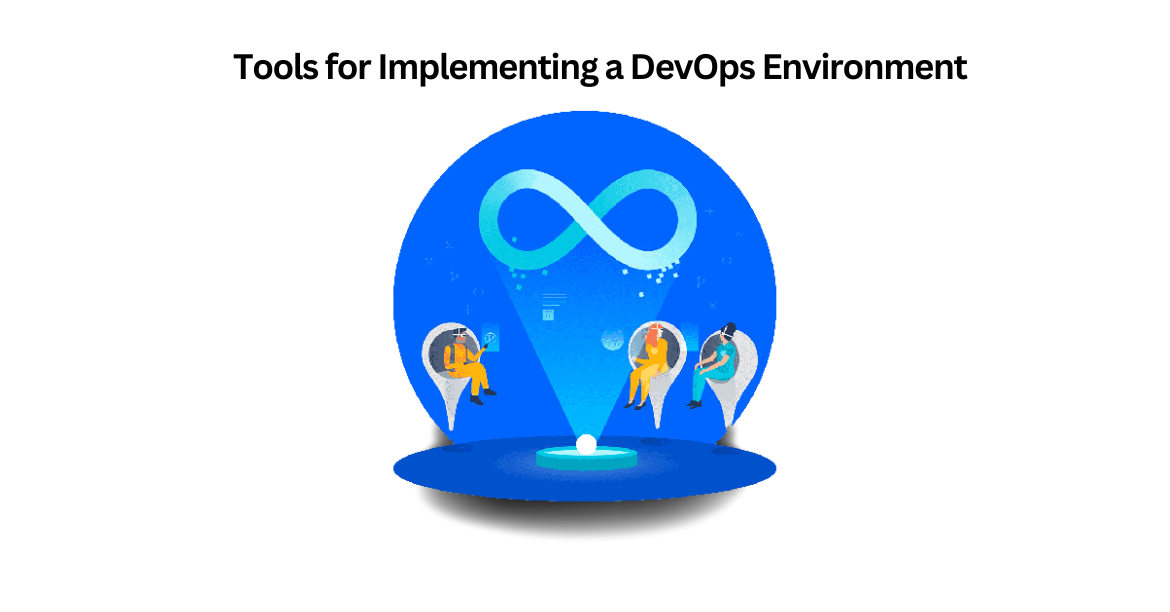
Introduction
DevOps is a set of principles that combines software engineering and operations to increase the efficiency and quality of a business’s IT operations. It can automate routine operational tasks, streamline IT operations, improve collaboration between departments, and enhance visibility into business processes. DevOps enables businesses to reduce the risk of errors and delays while increasing agility and responsiveness to customer needs.
Tools for Implementing a DevOps Environment
DevOps is a set of practices and tools that enables organizations to quickly and reliably develop, deploy, and manage applications. It combines the strengths of both software development (Dev) and operations (Ops) into a single process. By implementing DevOps, businesses can benefit from increased automation, enhanced collaboration between development and operations teams, better quality assurance processes, faster delivery cycles for applications and services, improved scalability options for software releases, and greater reliability in application updates or patches. Kelly Technologies provides the best DevOps Training in Hyderabad to all aspiring professionals who are looking for a career in this domain.
The success of any DevOps implementation depends on choosing the right set of tools based on your specific objectives. There are many different types of DevOps tools available that can help you achieve your goals. Some popular examples include infrastructure automation tools such as Ansible or Puppet, CI/CD tools like Jenkins or CircleCI, configuration management solutions like Chef or SaltStack, monitoring and logging solutions such as Datadog or Splunk, collaboration platforms including Slack or Microsoft Teams, and security solutions like Snyk Security Scanner.
When it comes to implementing a successful DevOps environment for your business, there are certain best practices that should be followed. Start small by automating simple tasks first, and then gradually build up complexity over time. Ensure all stakeholders are kept informed throughout the implementation process, as this will help keep everyone on track during complex projects. Leverage existing infrastructure whenever possible, and don’t reinvent the wheel when there’s already an established solution available that meets your needs perfectly.
Integrating and Managing Technology for an Effective DevOps Model
DevOps is quickly becoming an integral part of modern businesses, enabling organizations to make better use of their technology and resources. The key to successful DevOps integration is understanding the basics of automation and collaboration. In this section, we will explore how DevOps can improve your business by leveraging automation and collaboration and diving into key technologies that enable it.
To get started with DevOps, you need to understand how its principles can be implemented in your organization. This includes implementing cloud infrastructure for increased scalability, automating processes and systems through code instead of manual operations, adopting open-source technologies for greater collaboration between teams, utilizing containers for reliable deployments across multiple environments, leveraging analytics for better decision-making, and more. All these steps are necessary to reap the benefits that come with an effective DevOps model, such as improved agility, security, and cost efficiency. Kelly Technologies provides the best DevOps Training in Hyderabad to all aspiring professionals who are looking for a career in this domain.
Once you have established a solid foundation for your DevOps model, you can start exploring ways to further optimize workflows across development cycles with automation tools such as continuous integration/continuous delivery (CI/CD) pipelines or using containerization platforms like Kubernetes or Docker Swarm. Automation tools allow for faster deployment times while also reducing the development time required for new features or products/services – leading to increased organizational agility without sacrificing quality assurance standards thanks to continuous testing capabilities built into CI/CD pipelines.
Conclusion
This article in the Recifest must have given you clear idea about DevOps is a powerful tool for businesses to improve their processes by automating routine tasks, reducing costs, and increasing efficiency. Its combination of automation and collaboration allows for faster product delivery times while maintaining quality standards and improving customer satisfaction. With DevOps, businesses can gain access to better data, which can help inform decisions regarding product design or service offerings, as well as improved scalability and reliability in IT environments. The key benefits of DevOps include cost savings due to shorter development cycles, improved customer experiences due to quicker response times, increased security measures through improved monitoring capabilities throughout the product lifecycle stages, and greater scalability through enhanced collaboration among teams.











